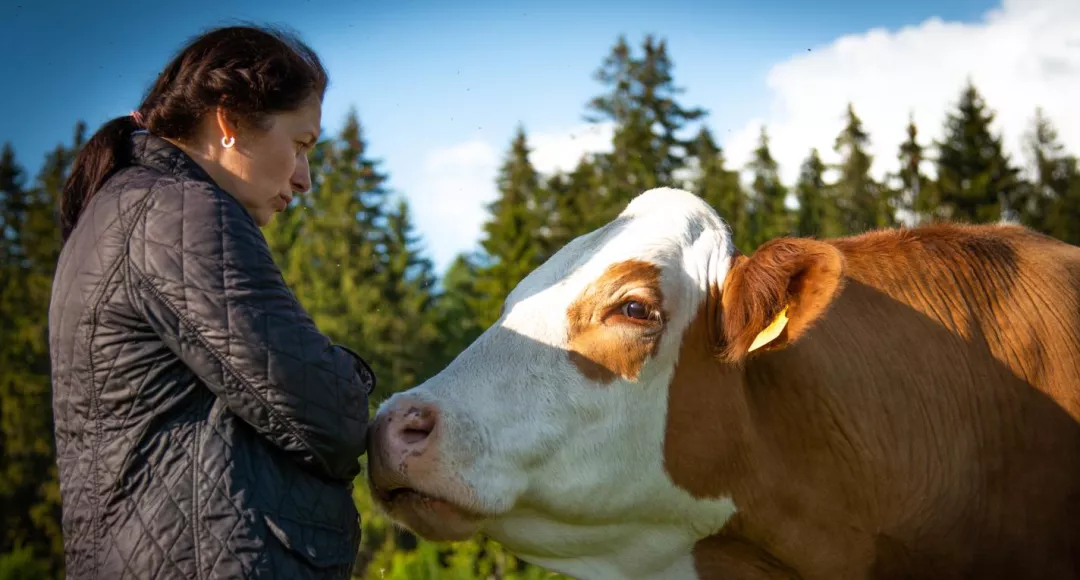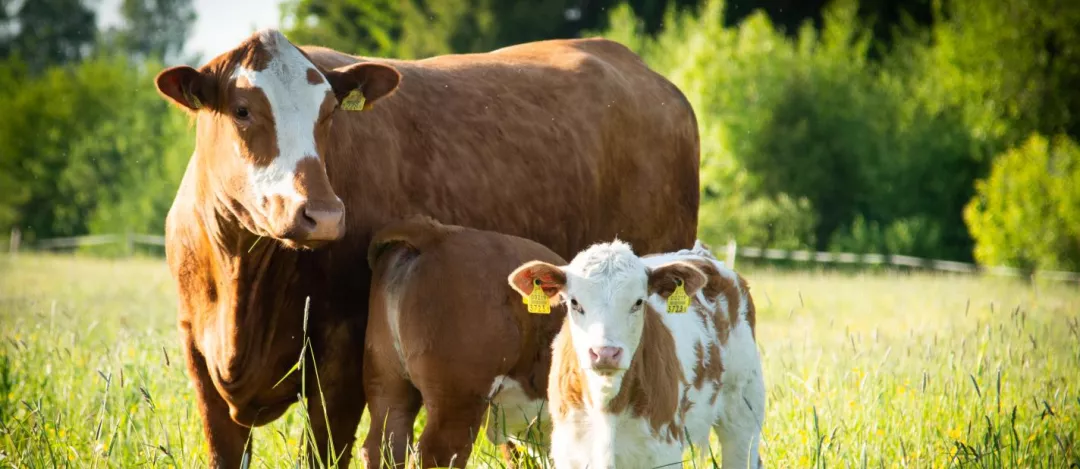Estonian farmer turns grassland grazing into climate solution
Sustainable cattle grazing for biodiversity, healthy soil and carbon capture
This inspirational idea is also available in a Slovak version. Translation courtesy of the National Rural Network Slovakia. Read more EIP-AGRI inspirational ideas in Slovak on the NRN website.
The realities of a changing climate have an increasing impact on our environment and on European agriculture and forestry. To build resilience to the effects of climate change, and actively contribute to climate change mitigation, Estonian farmer Airi Külvet is developing sustainable practices for her grazing cattle through a whole-farm approach. “It’s not difficult if you keep in mind the goal: a better soil that will be more sustainable and give a higher yield in the long run.”
Drought, changing rainfall patterns, extreme weather events, pests and diseases and other effects of climate change can seriously affect farm productivity, food production and farmers’ incomes. At Puutsa farm in Estonia, organic cattle farmer Airi Külvet is turning challenges into solutions, applying sustainable agricultural practices to benefit her farm business and her animals, and to make an active, positive impact on the environment and climate.

Airi manages a 300 ha organic cattle farm with mainly grassland. Her cattle are 100% grass-fed. The farm’s grazing system helps to restore the soil, enhance biodiversity, and support an efficient nutrient balance. Airi explains: “I apply a rotational grazing system on my farm, based on the Savory method and complemented with information from other European experts in regenerative agriculture. At the same time, I try to adapt my practices to the Estonian climate and to our soil and vegetation.” Airi uses IT solutions to plan the grazing rotations and monitor the structure and nutrient balance of her grassland soils. Applying composted manure helps to restore the soil and enrich it with soil organic matter. She is currently looking into different composting methods and is experimenting with direct seeding of cereals into grassland, and options for no-till cereal production in organic farming.
When managed correctly, these practices help to boost biodiversity and store carbon in the soil, which contributes to reducing greenhouse gas emissions and avoiding nutrient losses. “It’s a natural cycle. If you want to improve the soil, you have to get animals on it in one way or another, if possible. And it’s not difficult if you keep in mind the goal: a better soil that will be more sustainable and will ultimately still give a higher yield in the long run.”
By sharing results and experiences with other farmers, Airi helps to make the benefits of these practices more widely known. “For me, it is important to preserve our natural environment and highlight the important role of grazing animals in the ecosystem. Grazing is a very traditional way of production. The less work you do that uses fossil fuels, the better for the climate and for our wallet.”
Airi actively participates in research projects and innovative collaboration projects with other farmers. As Estonia’s Network Manager for the EU-funded thematic network BovINE, she helps disseminate good practices across Europe. “My involvement in BovINE has helped me to actively discuss good practices, such as the benefits of assessing newborn calf health and cattle welfare. It has broadened my horizon, from learning about environmental issues to beef prices on the world market. It has also made me realise that Estonia has good pedoclimatic conditions for beef production and that we are already implementing many good practices, such as multi-species swards.”

Airi is also the founder of the Grassfed Cattle Quality Scheme, which involves around 77 other farmers, and introduces environmentally friendly beef cattle farming across Estonia. “Through information days and farm visits, ideas are shared and the principles of herding are slowly being adopted. While each new method takes some time to be taken up, and some farmers fear that it will require more work, it helps to explain that portion grazing is simply a forgotten traditional method of grazing cattle that has been around for centuries, with good results for animals and climate.”
Project information
Contact:
Airi Külvet +372 53424274 - airi@liivimaalihaveis.ee
More information:
- More information on the Puutsa farm website: http://puutsa.ee/et
- Airi was one of the winners of the WWF Baltic Sea Farmer of the year award in 2021: https://www.wwfbalticfarmer.org/project/airi-kulvet-2/
Photos © Airi Külvet / Puutsa Farm